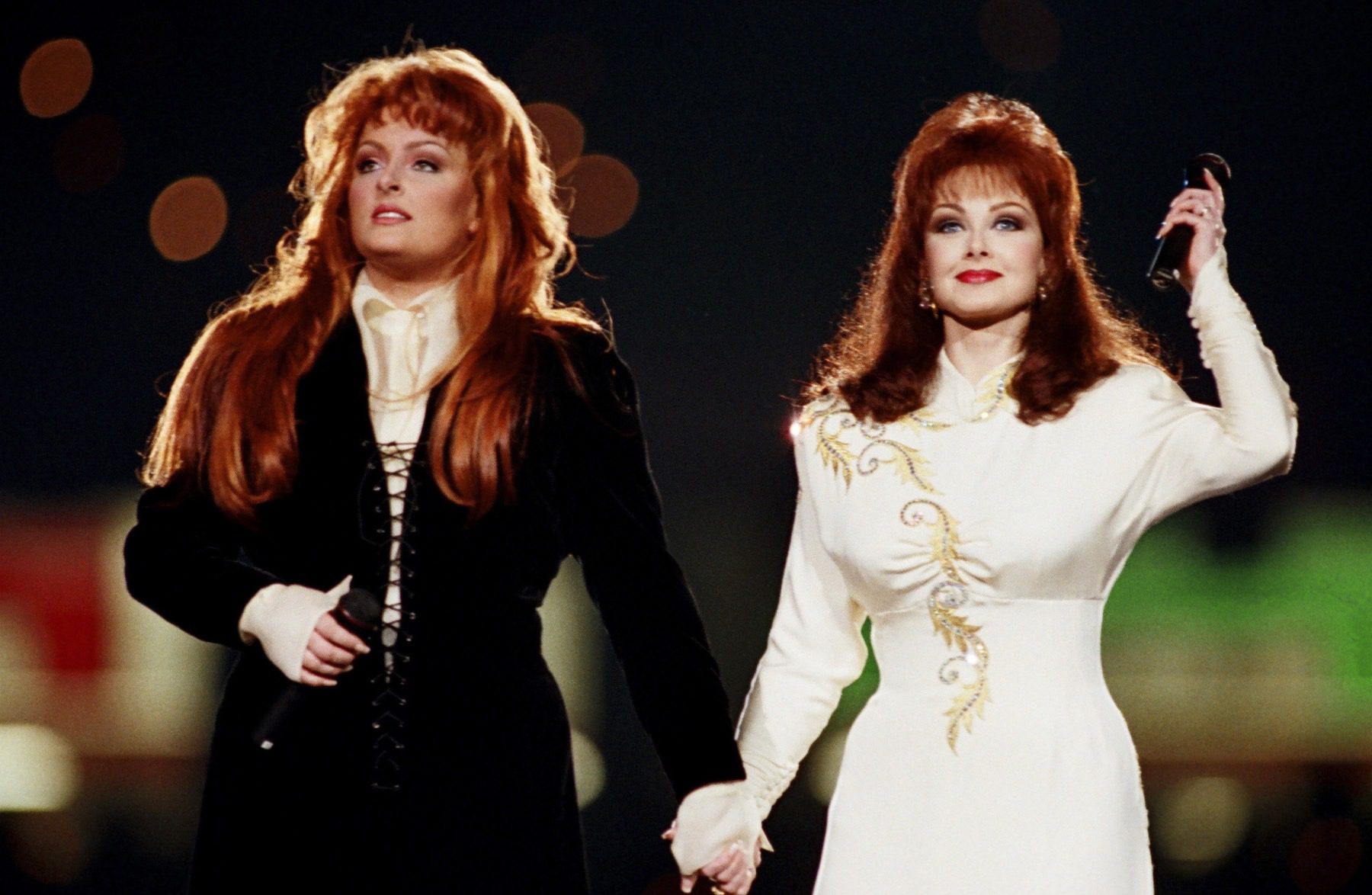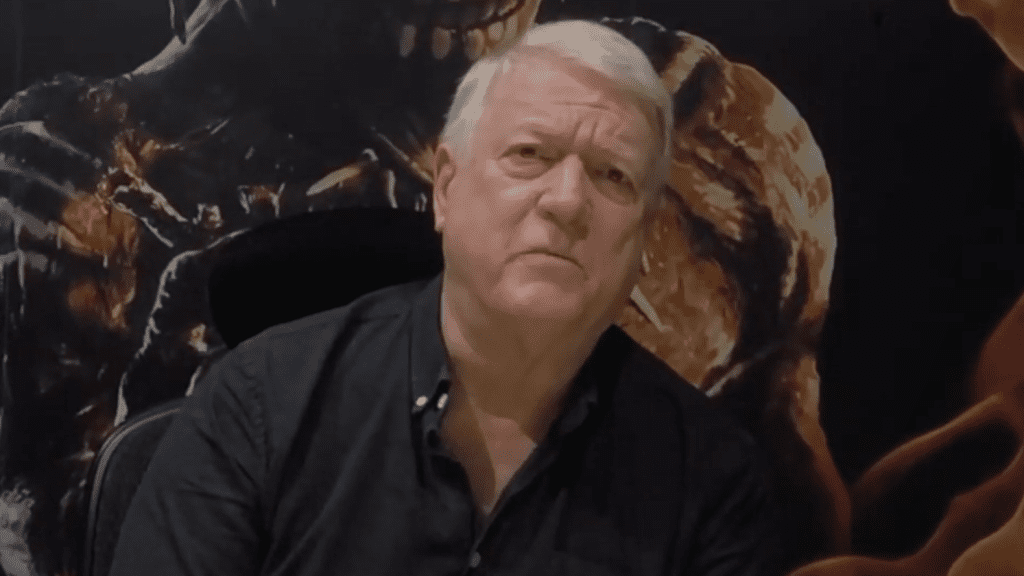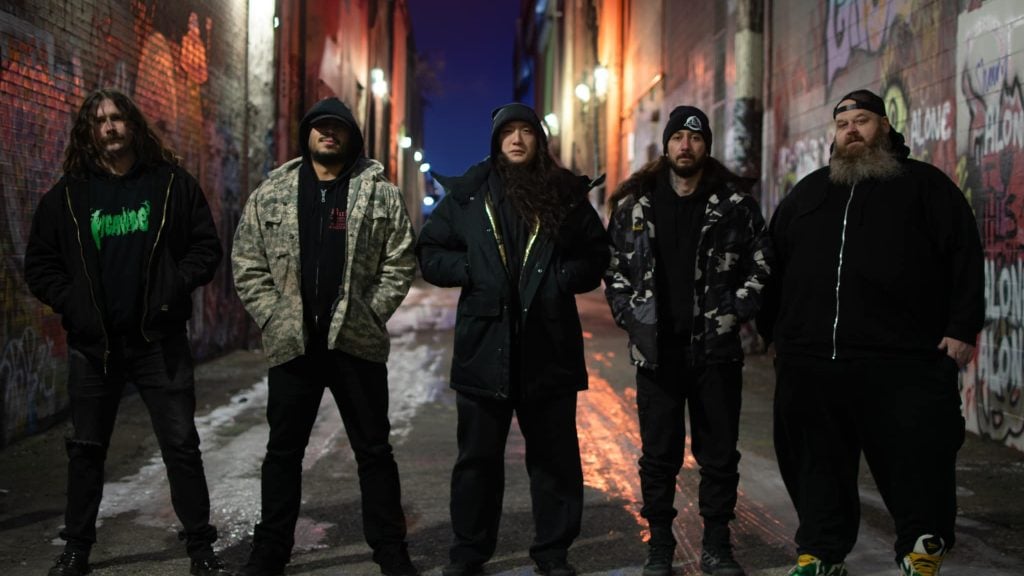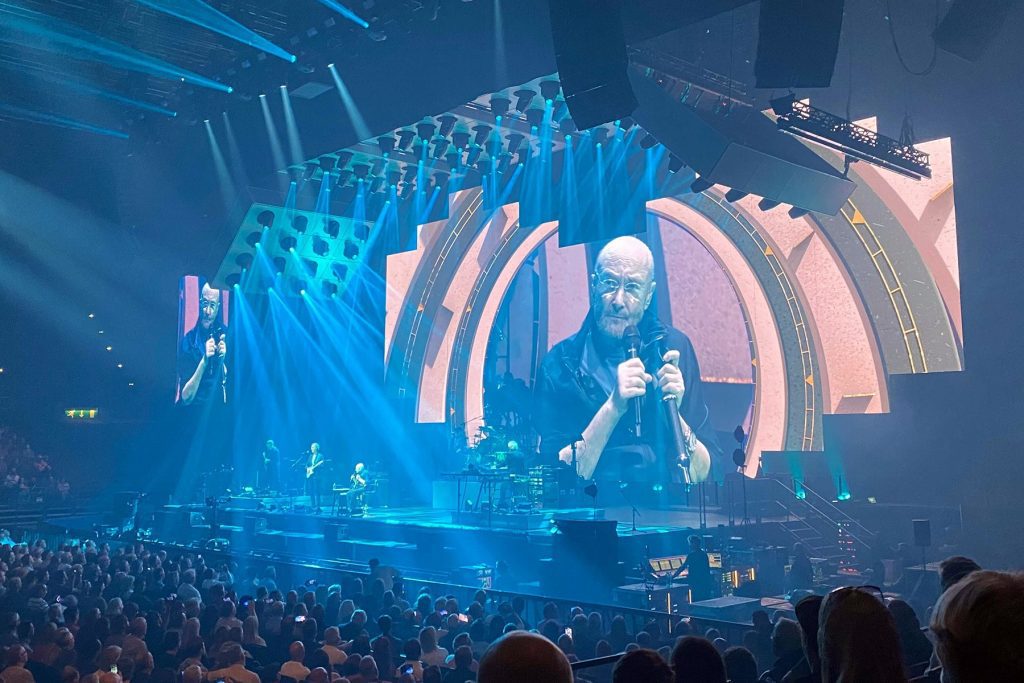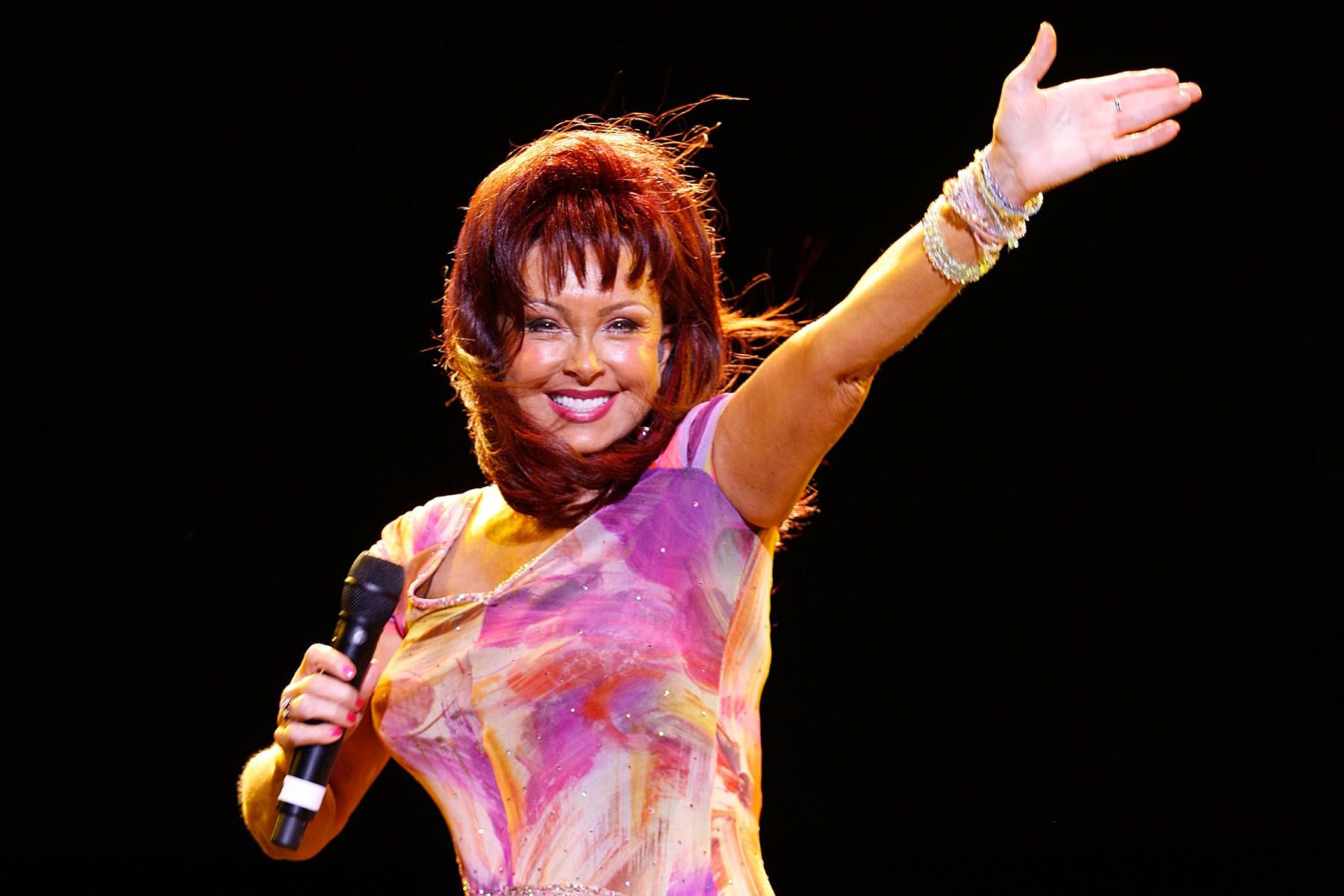
My Friend Naomi Judd Dealt With Crippling Depression — The Same Kind That Took My Brother’s Life
Where is she? Where is Naomi Judd?
I’m sitting in the CMA Theater at the Country Music Hall of Fame and Museum in Nashville. Wynonna and Ashley Judd are sitting up front with Wy’s son Elijah on one side and Wy’s husband and current musical partner, Cactus Moser, on the other. The program is beginning. The Judds are being inducted as the newest members of the Country Music Hall of Fame, and this is a moment I’ve been dreaming about with Naomi for years. But she is not here.
So, where is she?
That’s the funny part about shock. It mercifully kept me from remembering we’d lost Naomi just two days ago for a few brief moments. I’m not ready to fully accept this reality just yet.
The part of my brain that did comprehend Naomi Judd was really gone dreaded this big event — taking place a little more than a day since we lost her to “the disease of mental illness,” according to her daughters. It was a dread I hadn’t felt since I was driving home from Nashville to Alabama in 2017 when we lost my brother, David, to the disease of mental illness. I remember getting in the car soon after I got the phone call from my mother. I felt like I was climbing up the steep hill of a rollercoaster I did not want to ride. Would I even survive the fall on the other side?
blogherads.adq.push(function () {
blogherads
.defineSlot( ‘medrec’, ‘gpt-dsk-tab-country-article-inbody1-uid0’ )
.setTargeting( ‘pos’, [“mid-article”,”mid”,”in-article1″,”btf”] )
.setSubAdUnitPath(“music//country//article//inbody1”)
.addSize([[300,250],[620,350],[2,2],[3,3],[2,4],[4,2]])
;
});
But I did survive. I showed up for my family and learned to grieve in real time and let the tears flow. I learned that grief makes time elastic and causes physical strain on the body that requires rest. The muscle memory of that experience now serves me again as I come to terms with losing Naomi Judd, the country music superstar who became my friend and mentor.
My brother’s life was so troubled, with mental illness and drug addiction intertwined so tightly that all of our family’s love, effort, prayer, and privileged access to mental health resources couldn’t pry it apart to get him the healing he sought. He died at 33, which means our family had three decades of just trying to get David to function.
We had a lot of love, too. When David was sober and in a good head space, he and I shared a lot of laughs and a fervent love of country music. But when he was in the grips of depression and addiction, I feared for his life, and sometimes mine and my parents’ lives, too.
I learned to fly under the radar in my home to escape the chaos. I was a closeted gay kid feeling really out of place in suburban Birmingham, so music became my world, then eventually my career, once I moved to Nashville at age 18 and became a music journalist and radio host. The Judds were the ones who gave me permission to chase that dream.
In the Eighties, I was obsessed with the rich and famous. That fascination was a huge part of my escape, so Naomi Judd’s flashy outfits and the duo’s beauty and larger-than-life personalities were a clarion call to me. Yet the Judds’ blood harmonies and acoustic music also tapped into the hymns I was singing with my extended family on Sundays at my grandmother’s rural church. The Judds’ story provided a way to make sense of my family of origin with its chaos and love and music and my desire for something more beyond my small town in Alabama.
I devoured Naomi’s 1993 memoir as a 12-year-old and met her in 1994 at a book signing. In 1995, I saw Naomi again with Wynonna at Wynonna’s fan club party in Nashville. It was the day after my 14th birthday, and the photo of me smiling with my retainer showing as I stood between them is a prized possession. My orthodontist was a big fan of that photo, too.
blogherads.adq.push(function () {
blogherads
.defineSlot( ‘medrec’, ‘gpt-dsk-tab-country-article-inbody2-uid1’ )
.setTargeting( ‘pos’, [“mid-article”,”mid”,”in-article2″,”btf”] )
.setSubAdUnitPath(“music//country//article//inbody2”)
.addSize([[300,250],[300,251],[620,350],[2,4],[4,2]])
.setLazyLoadMultiplier(2)
;
});
View this post on Instagram
In 1996, Naomi came to speak in Birmingham, and my mom and I met her coming off the elevator at her hotel attached to the shopping mall where she would speak. She was so gracious and signed everything I put in front of her — the Judds’ CD box set, the photo of my 14-year-old self smiling in between the two of them. I even ran an online fan club for Wynonna in the mid-Nineties, writing news stories about Wynonna’s solo career and hosting Wynonna-themed chats and giveaways. This was my first experience in music journalism. Once I became a correspondent for ABC News Radio in Nashville, I interviewed Wynonna and Naomi every chance I got and even wrote the official artist bio for their 2010 reunion tour. It was important to me to get their story right, even with all the embellishments Naomi would sometimes throw in to heighten the drama. Hey, this is show business after all.
Fast forward to 2018, and I’d been working in music for about 15 years as a journalist when I found myself at a career crossroads. I finally had the chance to pursue whatever I wanted as a freelancer, and I’d grown increasingly frustrated with the Judds’ perennial absence from the Country Music Hall of Fame. In an effort to right that wrong, I decided I would tell the story of the Judds’ music as if I was actually there. I’d been writing stories about the Judds and working to get renewed focus on the Judds’ musical legacy in the press.
Getting into the Country Music Hall of Fame doesn’t just happen for most artists. Sometimes you have to remind the voters just who they’re overlooking, and most of the time it’s going to be a woman or, in this case, two.
In order to paint the Judds in the best light and make them seem worthy of induction, my instinct at the outset was to scrub everything but the music, because Naomi’s candor and the tabloid stories that accompanied that candor overshadowed the music time and time again. Nashville is a town historically built on baring the hard side of life in song, but God help you if you’re a woman living out those songs. Well, the Judds lived it all and shared the details, and it always felt like their music wasn’t being taken seriously as a result.
And it’s all sexist BS.
blogherads.adq.push(function () {
blogherads
.defineSlot( ‘medrec’, ‘gpt-dsk-tab-country-article-inbodyX-uid2’ )
.setTargeting( ‘pos’, [“mid-article”,”mid-articleX”,”mid”,”in-articleX”,”btf”] )
.setSubAdUnitPath(“music//country//article//inbodyX”)
.addSize([[300,250],[300,251],[3,3],[620,350]])
.setLazyLoadMultiplier(2)
;
});
The fact that what we now call Americana music was built on the Judds’ acoustic sound is all but forgotten. Those recordings deserved more. The quality that led Mark Knopfler, Bonnie Raitt, Carl Perkins, and Emmylou Harris to be the only artists to guest on the Judds’ albums during their heyday. The deceptive simplicity of Wynonna and Naomi’s intricate harmonies paired with Don Potter’s sophisticated country-jazz guitar licks. The Judds’ music deserves the same reverence heaped on the Johnny Cashes and Willie Nelsons, and yes, Dolly Partons of the format.
On top of that, Naomi Judd penned some of their biggest hits and most impactful songs — “Love Can Build a Bridge,” “River of Time,” and the Number One “Change of Heart,” to name a few.
I wanted to focus intensely on the music even though my personal reasons for doing this project go well beyond a reverence for the Judds’ music. Wynonna and Naomi continued to share their story as it evolved through the years, and I kept identifying with it throughout my adulthood.
Naomi Judd is not the first famous person to experience physical and mental illness, but she is one of the very few who have shared her experiences in detail. Her position as a former registered nurse gave her the medical and clinical understanding to communicate the living nightmares she experienced.
Naomi’s 2016 book, River of Time, contains the starkest personal account of trauma, depression, and suicidal ideation I’ve ever read. She wrote so frankly about the impact of childhood sexual abuse, which is also part of my story. Her transparency about undergoing ECT treatment for severe depression helped me not be so scared when my younger brother turned to the same treatment for depression in early 2017, just months before we lost him to mental illness due to a batch of cocaine laced with Fentanyl.
In my grief over losing my brother, I followed Naomi’s example of shedding light on the dark places. I started interviewing his friends to try to piece together the story of my brother’s life. David only showed certain sides of himself to certain people, but no one had the full picture of who David was and what he was going through towards the end of his life. I captured those emotional interviews with David’s friends and journaled through my grief, but a podcast or book directly about David’s experience was just too hard to face at that time.
Instead, I poured that energy into the work of telling the story of the Judds. If my family of origin’s story was too heavy, I’d just dip into my family of choice and make everyone understand just how integral the Judds are to modern American music. I conducted multiple interviews with Wynonna and Naomi, plus their contemporaries Ricky Skaggs, Reba McEntire, Emmylou Harris, their hero Bonnie Raitt, Trisha Yearwood, Brandy Clark, and Shane McAnally to fully understand the Judds’ musical beginnings, major success, and lasting impact. Those interviews will be heard for the first time in an upcoming Apple Music Country radio show later this month.
blogherads.adq.push(function () {
blogherads
.defineSlot( ‘medrec’, ‘gpt-dsk-tab-country-article-inbodyX-uid3’ )
.setTargeting( ‘pos’, [“mid-article”,”mid-articleX”,”mid”,”in-articleX”,”btf”] )
.setSubAdUnitPath(“music//country//article//inbodyX”)
.addSize([[300,250],[300,251],[3,3],[620,350]])
.setLazyLoadMultiplier(2)
;
});
View this post on Instagram
Losing Naomi has made it even more vital to share this personal side of my motivation in telling the story of the Judds’ music. There are so many parallels between my story and what Naomi’s family is now experiencing. But there is a peace knowing the struggle Naomi faced every day is now over. Same as it was with my brother. They both tried so hard.
A few weeks back, I had lunch with Naomi to get some new quotes for her bio as she prepared to enter the Country Music Hall of Fame and embark on a reunion tour with Wy. She’d just taped the CMT Awards performance of “Love Can Build a Bridge,” and it was encouraging to see her in her element while we waited for a table, approving press photos from that performance on her publicist’s iPad and telling me about the extravagant gowns she was creating for the tour.
In spite of all that activity and excitement, Naomi’s sadness crept into our conversation. The trauma of her childhood still lingered, and she told me she was trying to get past it. She’d been so candid with her struggles with depression and offering hope to others in telling her story, I figured that was all handled, though. Plus, I had a laser focus on her music, and I was trying to present Naomi in the best light to honor everything she’s done in her career in that artist bio.
But now I have no choice but to stop and really listen to what Naomi was saying and realize the tour and the fame and the Country Music Hall of Fame induction were not the panacea I thought they were for her. Same as with my brother, I can only be present and listen to the struggle and offer support, but I can’t go inside their heads and fix any of it. When I have the urge to question what I could have done differently with either Naomi or David, I get a real sense of powerlessness that can quickly turn to hopelessness. But Naomi believed, and David had some idea, that there was something beyond this earth. That there would be a place with no more suffering, hurt, fear, and darkness. I hope that’s so. Something in me rises up with that idea, and my sense is that the suffering is over for them.
God, let this be true.
That’s what her daughters Wynonna and Ashley are now clinging to as well, as evidenced by their poignant, loving, hopeful, brutally heartbreaking remarks on Sunday night as they accepted the Judds’ Country Music Hall of Fame induction.
blogherads.adq.push(function () {
blogherads
.defineSlot( ‘medrec’, ‘gpt-dsk-tab-country-article-inbodyX-uid4’ )
.setTargeting( ‘pos’, [“mid-article”,”mid-articleX”,”mid”,”in-articleX”,”btf”] )
.setSubAdUnitPath(“music//country//article//inbodyX”)
.addSize([[300,250],[300,251],[3,3],[620,350]])
.setLazyLoadMultiplier(2)
;
});
So, I let the tears flow as I sat through the Medallion Ceremony and listened as Ashley spoke so eloquently of her mother’s passion for country music, which sustained her in her final years in the face of crippling depression.
“I’m sorry she couldn’t hang on until today,” Ashley said through tears as she stood in her mother’s place beside Wynonna.
Wynonna recounted how the family gathered around Naomi’s body at the hospital Saturday afternoon and recited the 23rd Psalm, leaning in heavily on the promise that Naomi is now dwelling in the house of the Lord forever.
Wynonna added, “Though my heart is broken, I will continue to sing.”
The focus of this evening was rightly on remembering Naomi, and the Judds were truly her creation, but Ashley took pains to help celebrate her sister, too. At one point during their remarks, Ashley looked at Wynonna and said, “You are being inducted into the Country Music Hall of Fame.”
Wynonna was just 18 when they signed their record deal nearly 40 years ago and became country music royalty. The mantle of the Judds has always been uneasy for Wy to carry, since Naomi was the one who willed the duo into existence, but now, the Judds’ legacy is firmly in Wynonna’s hands.
Just as she did when she went solo in 1992, I believe Wynonna is going to thrive musically in the coming years. As Ashley said onstage, Wynonna Judd is the G.O.A.T. — the greatest of all time. She’s certainly my favorite singer of all time. No one touches her when it comes to vocal expression and power and beauty and emotional range.
Though their relationship was complicated, Naomi’s belief in Wynonna’s talent never wavered. She told me in that last interview over lunch: “Wynonna Ellen Judd is the greatest singer. She’s absolutely the best. When Wynonna sings, it’s so spiritual. It’s so soulful. I’m entranced.”
My prayer is that everyone who loves the Judds’ music will carry on. We’ll find new meaning in the songs Wynonna and Naomi created, but for now there is grief. There is pain, and that’s normal. It’s important to feel the loss of Naomi, because we loved her. As I learned with losing my brother, the tears of grief are an expression of love.
So, where is she? Where is Naomi? My hope is that she’s living out the words to one of her own self-penned songs, a major Judds deep cut called “When King Jesus Calls His Children Home.”
Like a bird in a cage that’s been set free
My soul will sing throughout eternity
I’ll shed this mortal shell
Oh, let ol’ Satan stay in hell
I’ve seen glory that no human tongue can tell
blogherads.adq.push(function () {
blogherads
.defineSlot( ‘medrec’, ‘gpt-dsk-tab-country-article-inbodyX-uid5’ )
.setTargeting( ‘pos’, [“mid-article”,”mid-articleX”,”mid”,”in-articleX”,”btf”] )
.setSubAdUnitPath(“music//country//article//inbodyX”)
.addSize([[300,250],[300,251],[3,3],[620,350]])
.setLazyLoadMultiplier(2)
;
});
God, let this be true.
